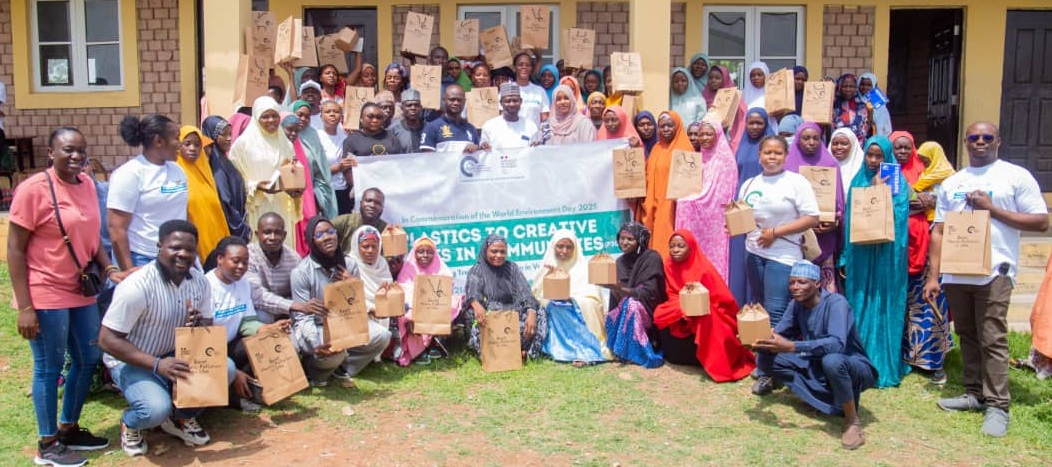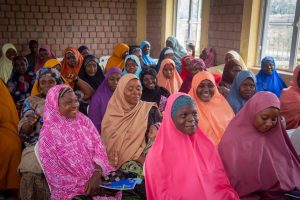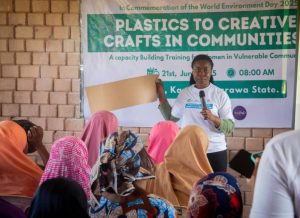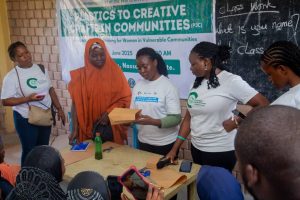
Reported by Paul Gwumapan Joseph
Climate and Sustainable Development Network of Nigeria (CSDevNet), in collaboration with Ecocykle Development Foundation, YouPAD, EcoSteward Foundation, and the Nasarawa State Waste Management and Sanitation Authority (NASWAMSA), hosted a transformative one-day workshop titled “Plastics to Creative Crafts in Communities (P3C)” on June 21, 2025, at Uke Community, Karu Local Government Area, Nasarawa State.
Sponsored by the Embassy of France in Nigeria, the event empowered over 70 women and girls with green entrepreneurial skills to upcycle plastic waste into reusable products, aligning with the World Environment Day 2025 theme, “Ending Global Plastic Pollution.”

The initiative aimed to address the environmental crisis of plastic pollution while fostering economic opportunities for vulnerable communities.
Through hands-on training, awareness sessions, and stakeholder engagements, participants gained practical skills in creating eco-friendly crafts and sustainable packaging.
The workshop commenced with opening remarks from Lauritta Boniface, Executive Director of Ecocykle, who emphasized the importance of innovative solutions to plastic pollution.
Participants engaged in educational sessions led by experts, including Joanna Hannu, Communications Assistant at CSDevNet, who highlighted Nigeria’s plastic waste challenges and the need for sustainable practices, and encouraged participants to seize the opportunity and become agents of change in their communities.
The practical sessions, facilitated by Membe Uyeh and Blessing Ekwere, divided participants into groups to learn upcycling techniques for creating artistic jewelry and bio-based paper packaging.

Ten standout participants received starter packs to kickstart their green enterprises, fostering immediate application of their new skills.
The event also featured stakeholder dialogues with community leaders and NASWAMSA, reinforcing local commitment to waste management.
In her keynote address, Lauritta Boniface stated, “By transforming plastic waste into valuable products, we are not only cleaning our environment but also creating sustainable livelihoods for women and girls in Uke Community.”
Similarly, Joanna Hannu remarked, “Nigeria’s plastic pollution crisis demands collective action. Empowering communities with skills to repurpose waste is a step toward a cleaner, more resilient future.”
These statements underscored the dual focus on environmental and economic empowerment. The event concluded with a vote of thanks from beneficiaries and closing remarks from partner organizations, affirming the collaborative spirit of the initiative.

The P3C project addressed Nigeria’s annual production of 2.5 million tons of plastic waste, much of which pollutes dumpsites and waterways, disproportionately impacting vulnerable groups.
By training 70 women and girls, the workshop increased community awareness of plastic waste reduction and equipped participants with income-generating skills.
With over 50% of participants expected to launch small-scale upcycling enterprises, the event laid the foundation for sustainable economic growth and environmental stewardship in Uke Community.
This initiative serves as a model for scalable, community-driven solutions to global plastic pollution, with potential for replication across Nigeria.
